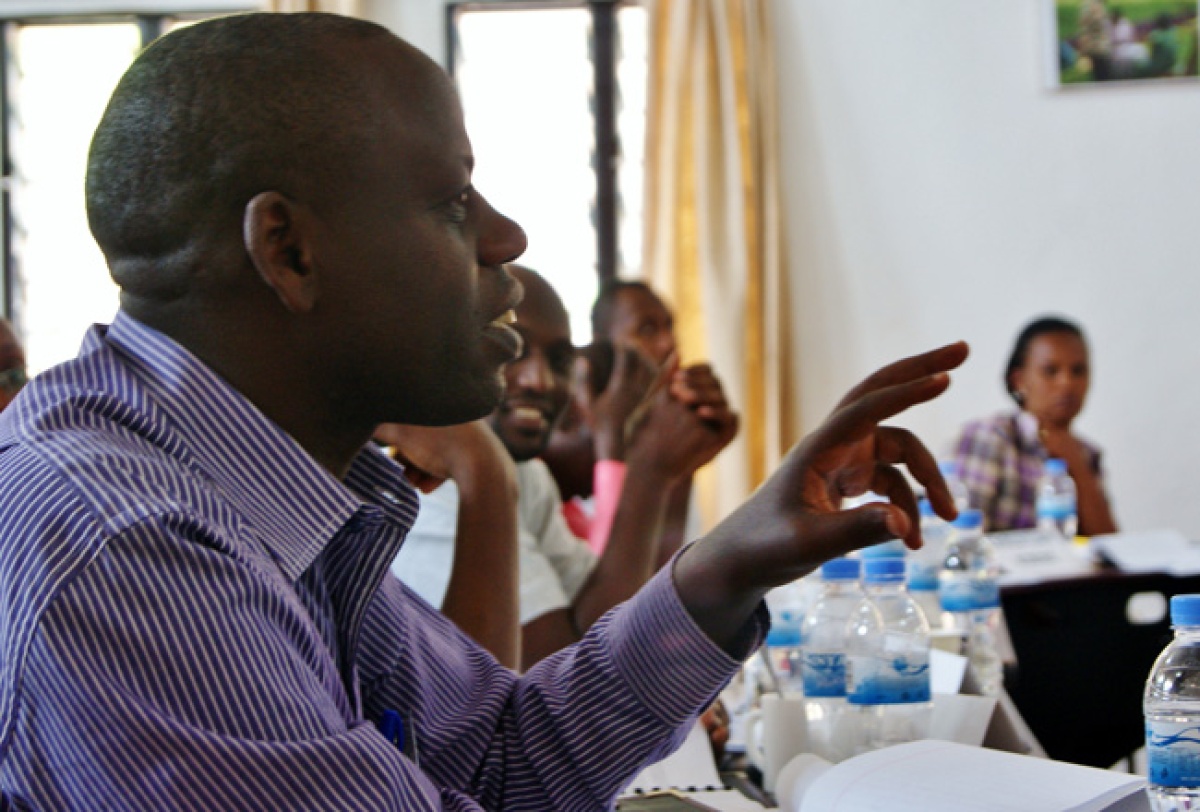Classroom Collaboration in Rwanda
Posted on Jun 26, 2013

Partners In Health never does anything alone. To deliver high-quality health care to those most in need, we forge lasting collaborations with governments, universities, private companies, and even other nongovernmental organizations. Working across such a wide spectrum creates remarkable opportunities and outstanding results.
Take for instance last week, when PIH and our Rwandan sister organization Inshuti Mu Buzima were lucky enough to participate in the Harvard-Rwanda Global Health Delivery Field Course, a program that drew on the expertise of more than 40 people from Rwanda and the United States. With support from the Rwandan Ministry of Health and Harvard University, the course delved into case studies, explored epidemiological trends, and discussed the political and economic factors behind successful health systems.
“Rwanda is a theater of something extraordinary,” PIH co-founder Dr. Paul Farmer said during his opening remarks for the course. “This is a country that can teach a lot to other settings in the world, including the United States. Everything you see here has been done through collaboration and taking on problems.”
Rwanda, as Farmer and colleagues detailed in a recent BMJ article, radically transformed its health sector in the wake of the 1994 genocide. As a result, malaria deaths plummeted, access to lifesaving HIV medications soared, and far fewer children are dying needless deaths. The Global Health Delivery Field Course provided a forum to contextualize these gains and strategize ways to build on them.
“This course is very good and practical,” said Vincent Rusanganwa, medical education and research expert at the Ministry of Health of Rwanda. “We see what are the good practices in other countries and then we can improve our thinking.”
Others echoed that sentiment. “The course is very interesting. It’s an occasion to meet different people from different institutions and countries,” said Anita Ahayo, prevention and voluntary counseling and testing specialist at the Rwanda Biomedical Center. “For us planners, we don’t have such opportunities to build capacity.”
Over the course of the week, speakers from the Rwandan MOH, including Minister Agnes Binagwaho, PIH, and Harvard Medical School delivered lectures and fielded questions from students who encounter new challenges in the field every day.
Dr. Marie Aimee, director of the noncommunicable disease division at the Rwanda Biomedical Center, said the course provided invaluable lessons that she’ll be able to apply as the Center scales up cancer services and other NCD-related programs.
And while the focus was on Rwanda, everyone who participated walked away with new insights.
“This is a very different kind of class. It’s about working together and taking on problems," Farmer said. “I’ve learned a lot more reading these cases and teaching this class than I have in a long, long time.”

